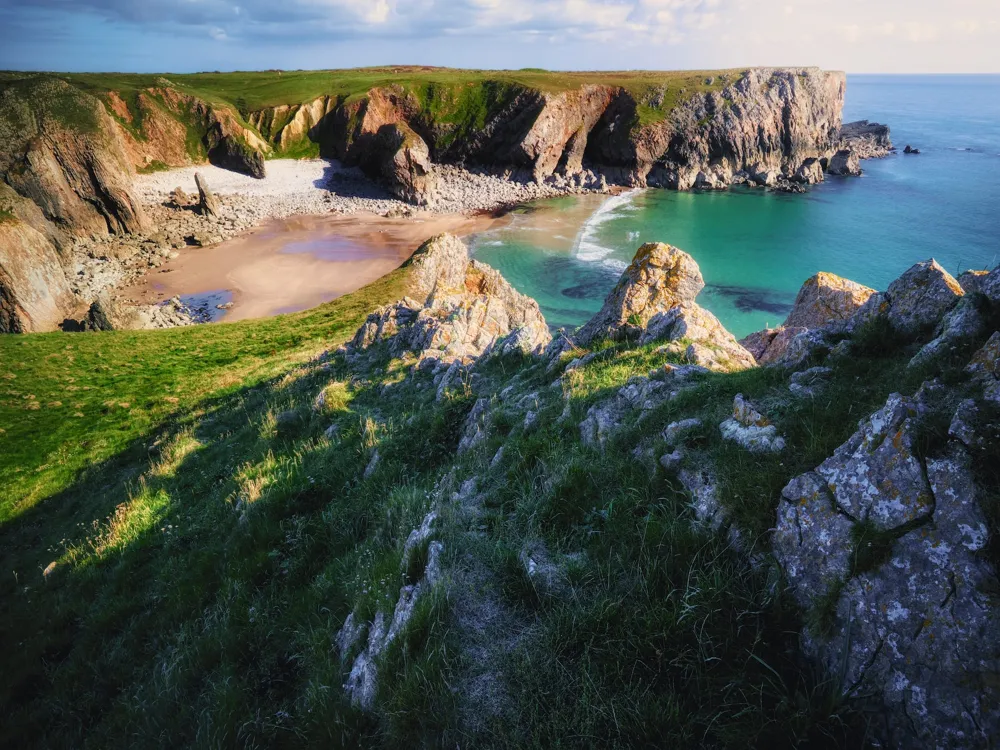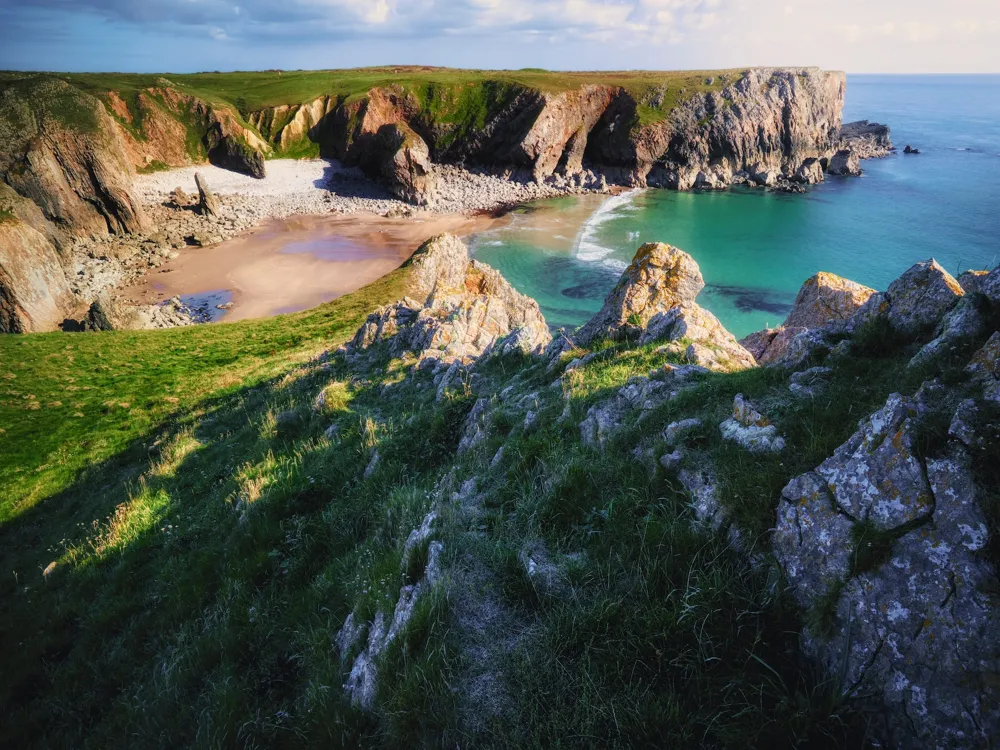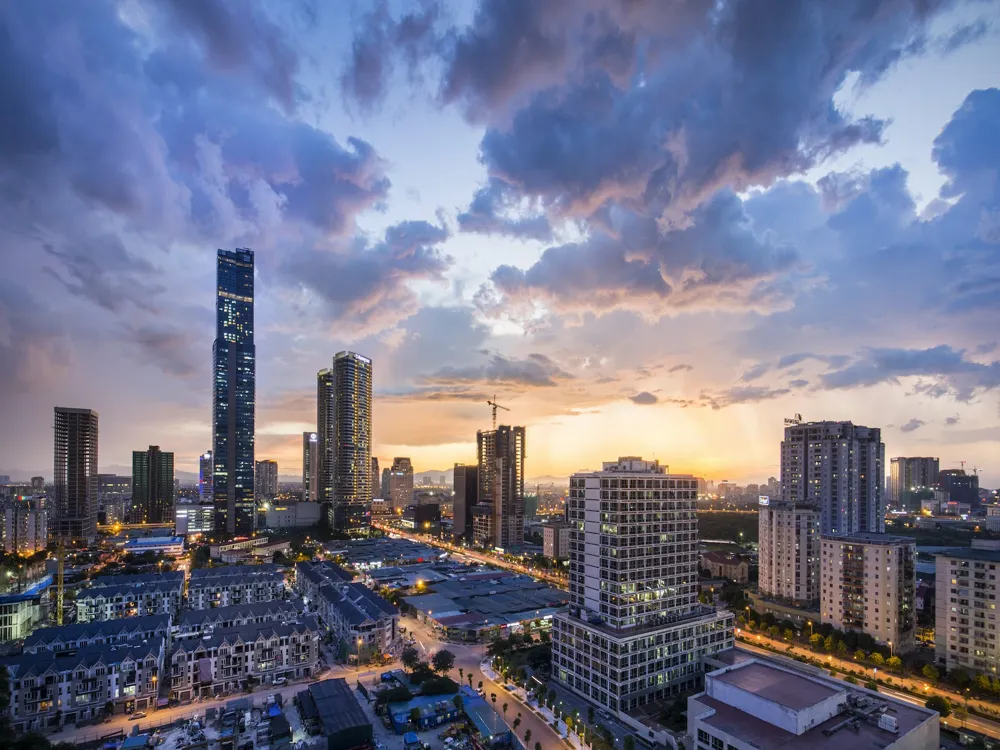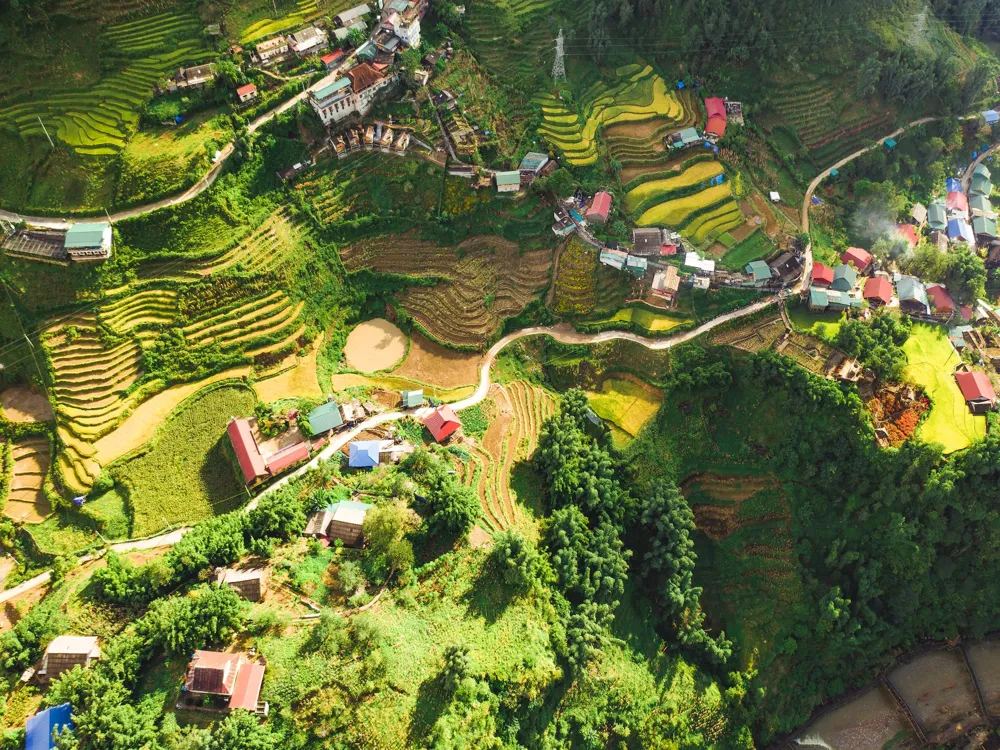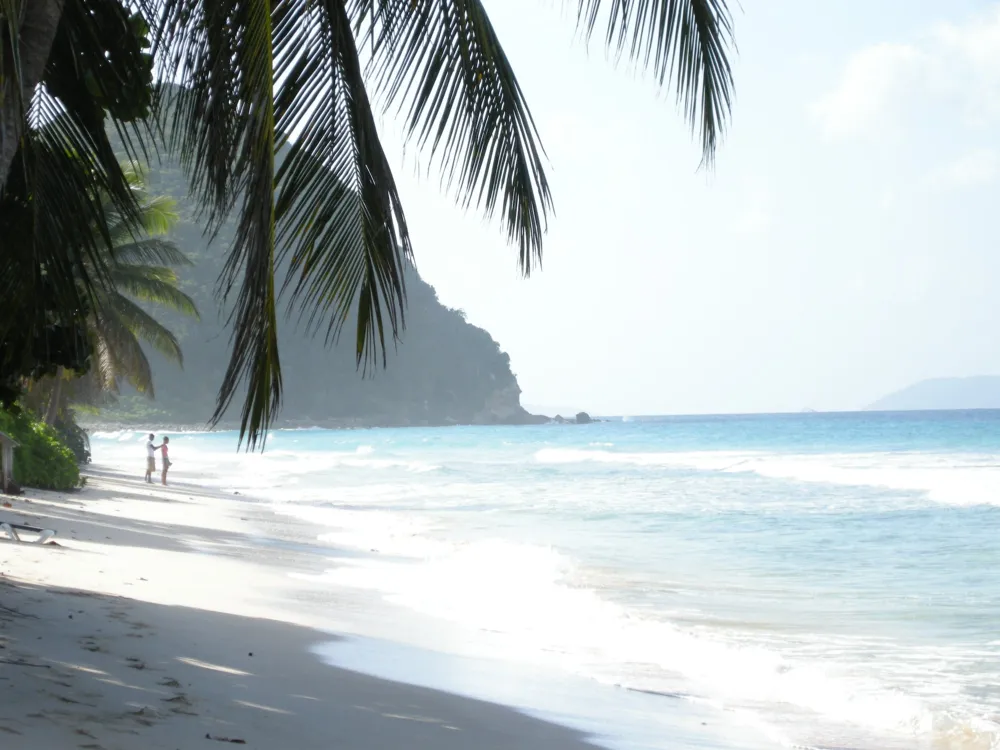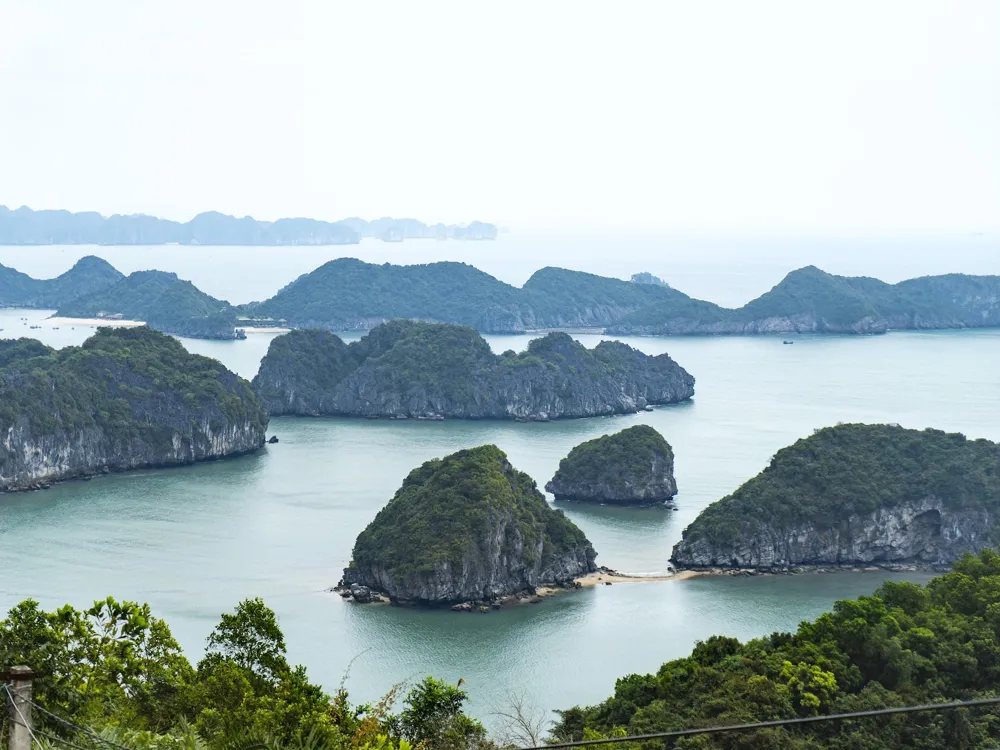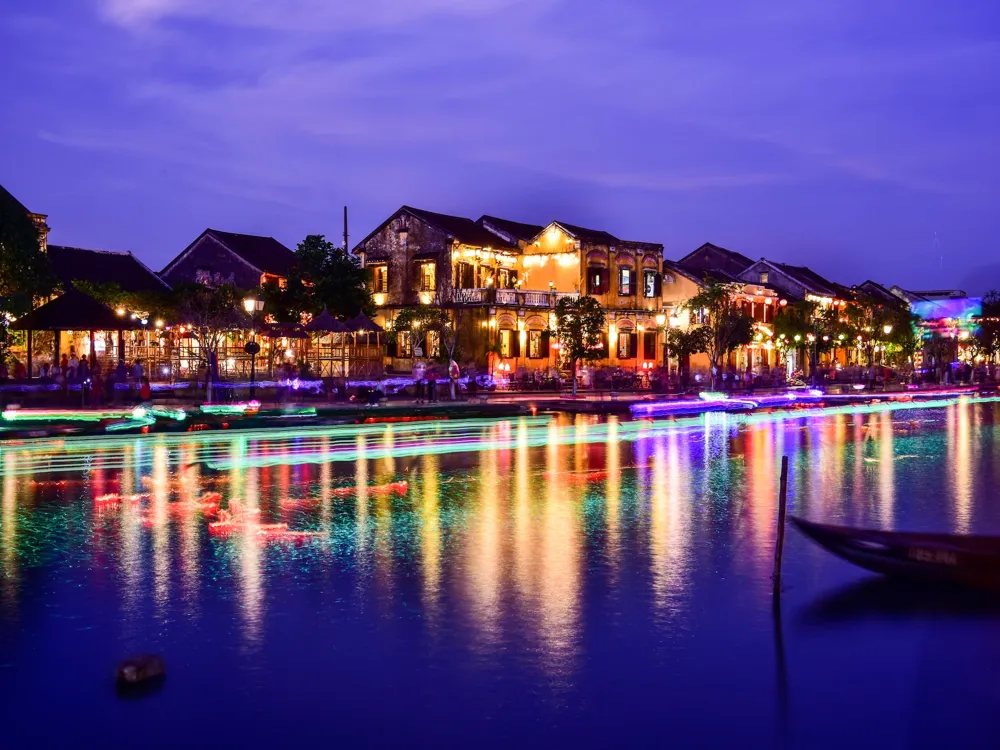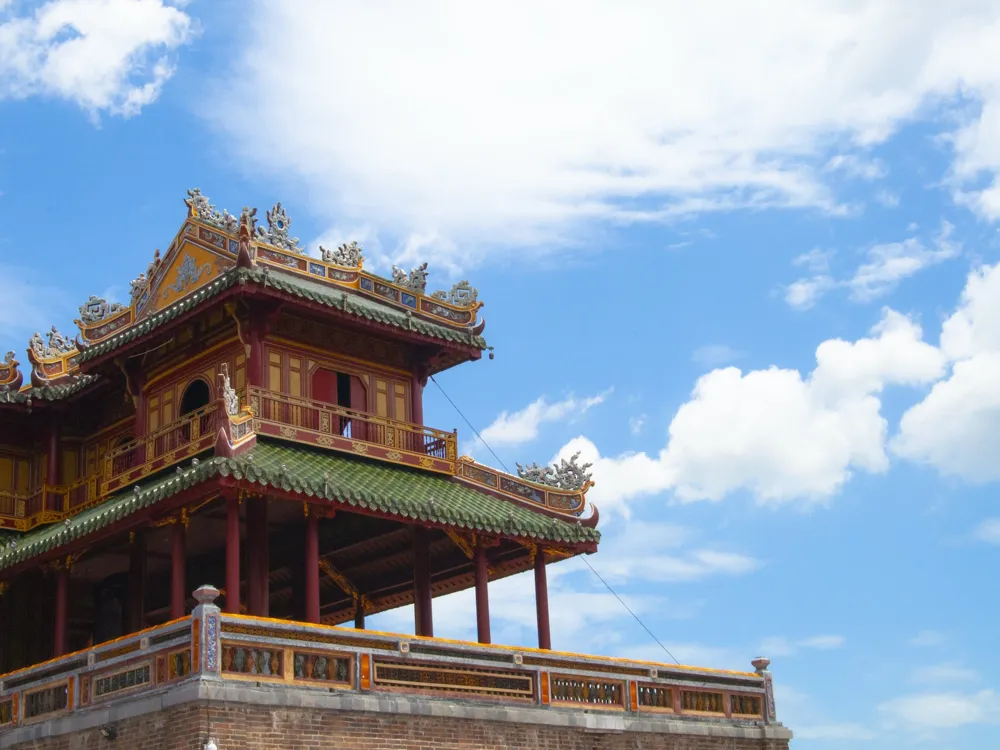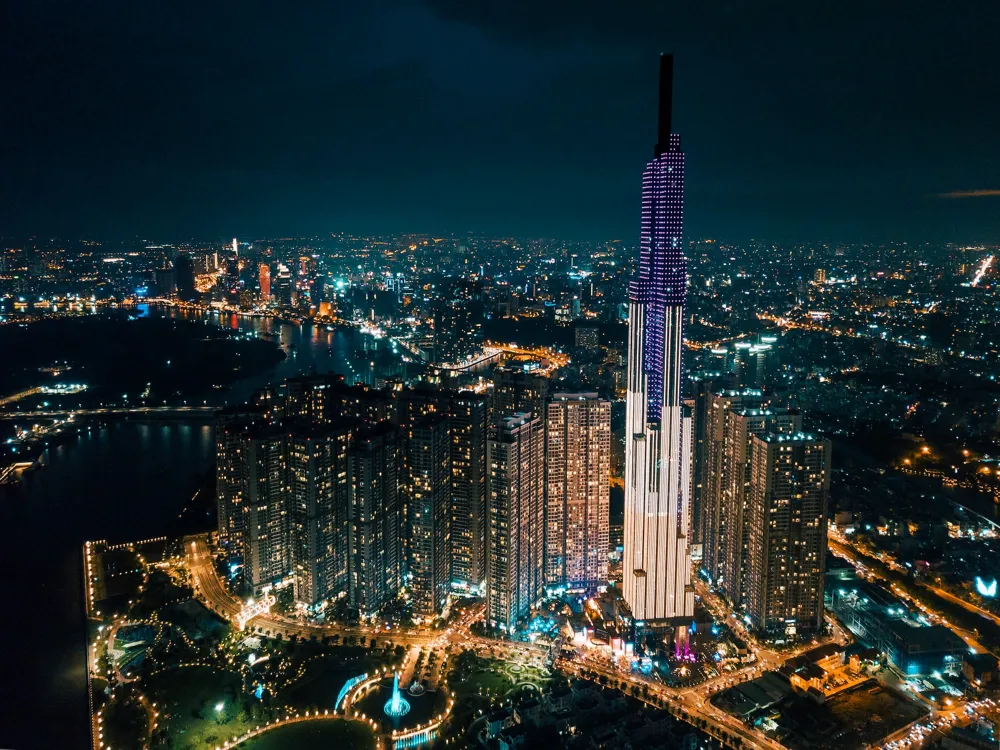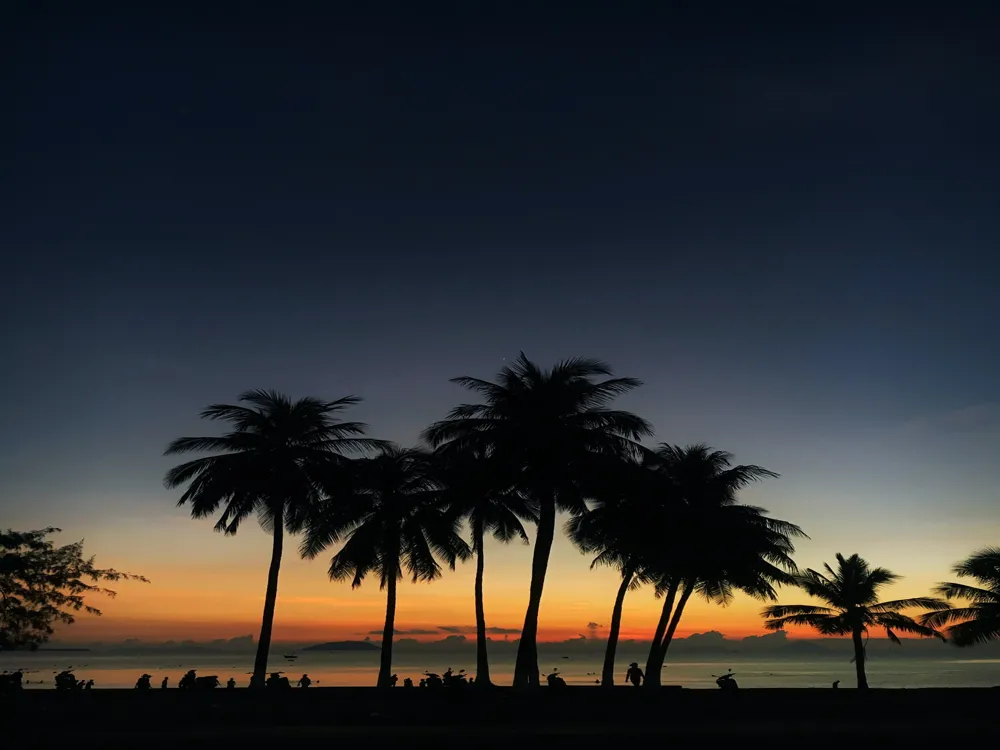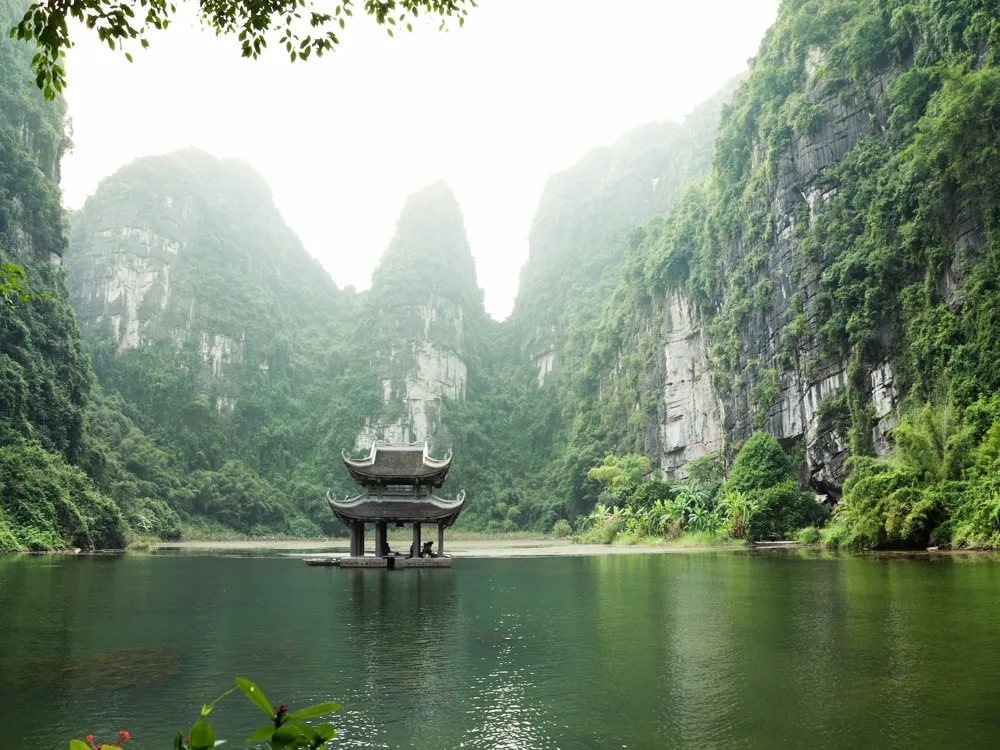Halong Bay, a UNESCO World Heritage Site located in the Quang Ninh Province of Vietnam, is an area of ethereal beauty that has captivated visitors for centuries. Known for its emerald waters and thousands of towering limestone islands topped with rainforests, it spans an area of around 1,553 square kilometers and is home to approximately 1,600 islands and islets, most of which are uninhabited. The name 'Halong' translates to 'where the dragon descends into the sea', and the bay's mystical landscape is rich in folklore and legend. According to local mythology, the islands were formed by a great dragon who lived in the mountains. As it charged towards the coast, its tail gouged out valleys and crevasses, and once it plunged into the sea, the area filled with water, leaving only the pinnacles visible.
Beyond its stunning scenery, Halong Bay is a testament to the wonders of nature and the adaptability of life. It supports a community of fishermen who reside in floating villages, sustaining a lifestyle that has remained largely unchanged for centuries. The bay also boasts a rich biodiversity with typical ecosystems like mangrove forests, coral reefs, and tropical forests. It is home to various species of flora and fauna, including endemic species, making it not only a place of immense natural beauty but also of significant biological and ecological importance.
The architecture of Halong Bay is not about buildings and structures but rather about the unique and natural geological formations that create a spectacular and almost surreal landscape. These formations are predominantly limestone, which has undergone millions of years of weathering and evolution to take on the fantastic shapes and forms seen today. The bay's most famous feature is its karst landscape, created by the dissolution of soluble rocks such as limestone, dolomite, and gypsum. This process has resulted in the creation of caves, tunnels, and various intricate formations both above and below the water's surface.
Among these natural structures, the caves of Halong Bay are particularly noteworthy. The Sung Sot Cave, or Surprise Cave, is the largest and most impressive, with vast chambers that conceal stalactites and stalagmites of all sizes and shapes. The Dau Go Cave, or Wooden Stakes Cave, is historically significant, as it's believed to be the place where General Tran Hung Dao hid his wooden stakes to defeat the Mongolian army in the 13th century. These caves are more than just tourist attractions; they are the keepers of history, legends, and myths that continue to intrigue and mystify.
The best time to visit Halong Bay is during the spring (March to May) or autumn (September to November) when the weather is pleasant with less chance of rain, and the temperature is moderate, making it ideal for cruising and exploring the islands.
Opt for a reputable cruise company that prioritizes safety and environmental conservation. There are various types of cruises available, from budget to luxury, offering different itineraries and experiences. Do your research to find one that suits your preferences and budget.
Respect the local culture and traditions. Dress modestly when visiting rural areas or temples and always ask for permission before taking photos of the local people.
Always prioritize safety during your trip. Follow the safety instructions provided by your tour guide or cruise company, especially when participating in activities like kayaking or swimming.
Halong Bay is accessible by various means of transport. The most common way to get there is by road from Hanoi, which takes about 3-4 hours. There are numerous tour buses that make the journey daily. Alternatively, for a quicker and more scenic route, you can opt for a seaplane from Hanoi, offering stunning aerial views of the bay. There are also private car services and taxi options for a more comfortable and flexible journey.
Overview of Halong Bay
Architecture of Halong Bay
Tips When Visiting Halong Bay
Best Time to Visit
Choosing a Cruise
Local Culture and Customs
Safety and Security
How To Reach Halong Bay
Ha-Long-Queen-Seilbahn
Halong Bay
₹ 15,260 onwards
View halong-bay Packages
Halong-bay Travel Packages
View All Packages For Halong-bay
Top Hotel Collections for Halong-bay

Private Pool

Luxury Hotels

5-Star Hotels

Pet Friendly
Top Hotels Near Halong-bay
Other Top Ranking Places In Halong-bay
View All Places To Visit In halong-bay
View halong-bay Packages
Halong-bay Travel Packages
View All Packages For Halong-bay
Top Hotel Collections for Halong-bay

Private Pool

Luxury Hotels

5-Star Hotels

Pet Friendly











